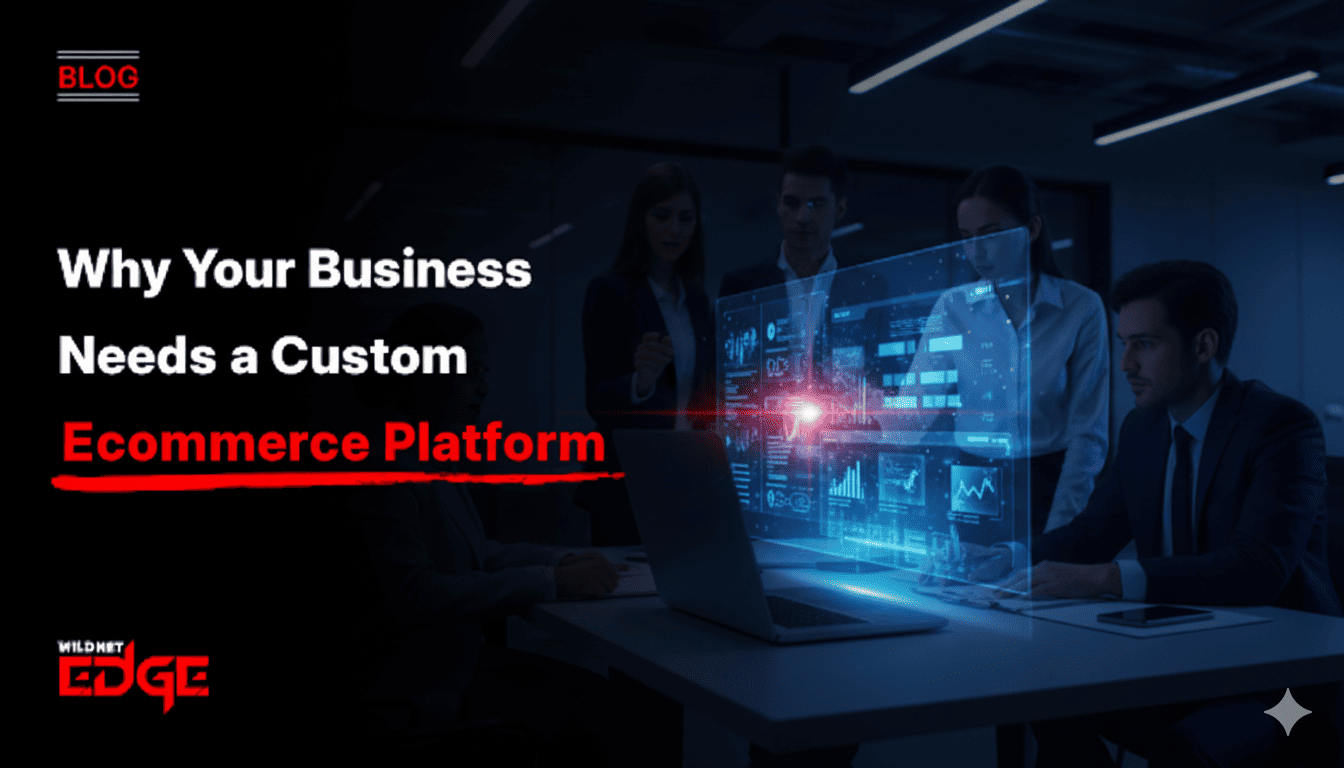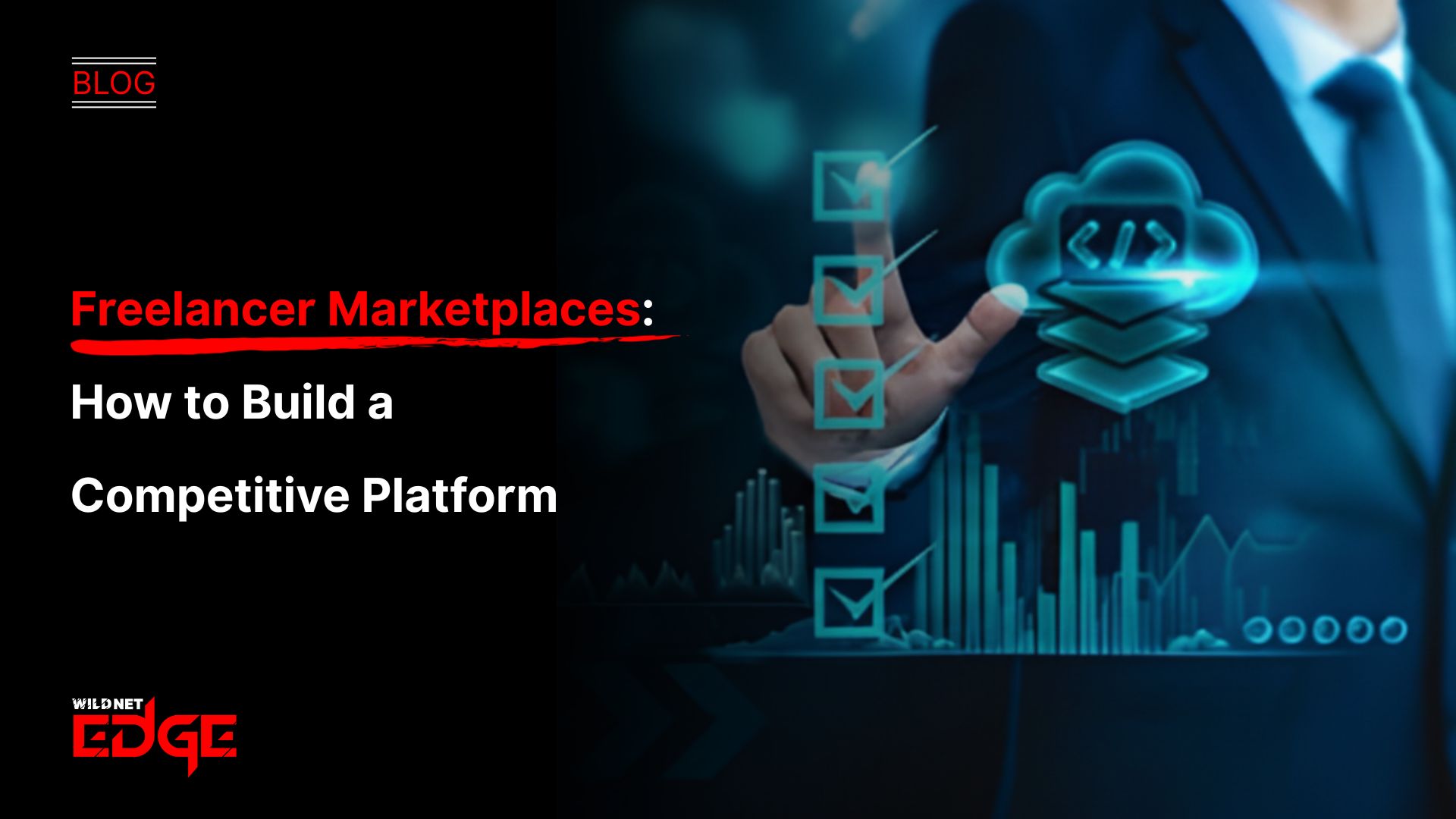TL;DR
This article explains that for a growing business, a custom eCommerce platform is a strategic asset, not just a cost. It details how off-the-shelf solutions like Shopify or BigCommerce can limit a brand’s unique user experience and scalability. The guide explores the core benefits of tailored eCommerce solutions, including unmatched flexibility in design, superior performance, and seamless integration with existing business systems like ERPs and CRMs. It also highlights the enhanced security of a proprietary codebase. Ultimately, the article presents a custom platform as the key to building scalable online stores that can adapt to market changes and provide a distinct competitive advantage.
Your eCommerce website is your most crucial storefront in the crowded digital marketplace. While off-the-shelf platforms like Shopify or BigCommerce offer a quick and easy way to get started, they often force your unique brand into a generic template. As your business grows and your needs become more complex, you will inevitably hit a wall. To break through that wall and build a truly differentiated brand, you need a solution built just for you: a custom eCommerce platform.
What is a Custom eCommerce Platform?
A custom eCommerce platform is an online retail solution built from to meet the specific needs of your business. Unlike template-based SaaS platforms, it is not a generic product. Instead, it is a piece of proprietary software that you own and control completely.
This means every feature, every workflow, and every pixel of the user interface is designed around your products, your operational processes, and your brand identity. It’s the difference between buying a suit off the rack and having one tailored perfectly to you. This approach allows for the creation of truly tailored eCommerce solutions that generic platforms simply cannot match.
Why a Custom Platform is a Strategic Investment
Moving to a custom platform is a significant decision, but it’s one that pays long-term dividends across your entire business.
Unmatched Flexibility and a Unique Brand Experience
Off-the-shelf platforms are limiting. You are constrained by their available themes, features, and checkout processes. A custom eCommerce platform gives you complete creative freedom. You can design a unique and memorable user experience that perfectly reflects your brand, from a custom product configurator to an innovative checkout flow. This ability to create a one-of-a-kind experience is a powerful competitive advantage.
Superior Scalability for Long-Term Growth
As your business grows, so does your traffic, your product catalog, and the complexity of your operations. SaaS platforms can struggle under heavy load or may charge exorbitant fees to scale. A custom platform, on the other hand, is architected to be one of your most scalable online stores. It is designed to handle your projected growth, ensuring your site remains fast and reliable, even during peak traffic events like Black Friday.
Seamless Integration with Your Core Business Systems
Your eCommerce store does not operate in a vacuum. It needs to communicate with your other business systems, such as your ERP for inventory, your CRM for customer data, and your accounting software. Integrating these with a generic platform can be clunky and expensive. A custom eCommerce platform is built with APIs designed specifically to connect seamlessly with your existing tech stack, creating a single, unified source of truth for your entire business.
Enhanced Security and Full Control
When you use a popular SaaS platform, you are sharing an architecture with thousands of other stores. A single vulnerability in that platform can put all of them at risk. Because a custom platform has a unique, proprietary codebase, it is a much less attractive target for hackers. You have full control over your security protocols and can implement advanced measures tailored to your specific needs.
Off-the-Shelf vs. Custom: A Strategic Comparison
The choice between a SaaS platform and a custom build has significant long-term implications.
| Feature | Off-the-Shelf Platform | Custom eCommerce Platform |
| Flexibility | Limited by templates and pre-built features. | Unlimited design and functional freedom. |
| Scalability | Can be limited or become very expensive. | Architected for your specific growth needs. |
| Initial Cost | Low initial setup cost. | Higher upfront investment. |
| Total Cost of Ownership | High ongoing subscription and transaction fees. | Lower long-term costs; no recurring fees. |
| Competitive Edge | Puts you on a level playing field. | Provides a unique, defensible advantage. |
Our Custom eCommerce Solutions in Action: Case Studies
Case Study 1: A B2B Manufacturer’s Ordering Portal
- The Challenge: A large B2B manufacturer was using a outdated portal for their distributors. The system was hard to use, couldn’t handle complex pricing rules, and didn’t integrate with their ERP.
- Our Solution: We provided end-to-end Ecommerce Development Services. We built a custom eCommerce platform featuring a user-friendly interface, a powerful rules engine for custom pricing, and a deep, real-time integration with their inventory management system.
- The Result: The new platform streamlined the ordering process, reducing order errors by 95%. The ease of use led to a 30% increase in order frequency from their distributors, and the real-time data sync eliminated stockout issues.
Case Study 2: A Direct-to-Consumer Brand’s Scalability Solution
- The Challenge: A fast-growing D2C brand was running on a popular SaaS platform. During a major marketing campaign, their site crashed due to a massive traffic spike, costing them hundreds of thousands in lost sales. They needed one of the most scalable online stores possible.
- Our Solution: We migrated them to a custom, headless eCommerce architecture. We built a lightweight, incredibly fast front-end and a robust, auto-scaling back-end on the cloud designed to handle extreme traffic loads.
- The Result: The following holiday season, the site handled a 1000% increase in traffic with zero downtime. The faster page load speeds also improved their SEO rankings and increased their organic conversion rate by 20%.
Our Technology Stack for eCommerce
We use a modern, flexible stack to build high-performance tailored eCommerce solutions.
- Headless Commerce Platforms: commercetools, BigCommerce, Shopify Plus, Magento
- Frontend Frameworks: React, Next.js, Vue.js
- Backend: Node.js, Python, PHP
- Databases: PostgreSQL, MySQL, MongoDB
- Cloud Infrastructure: AWS, Google Cloud, Vercel
Conclusion
While off-the-shelf solutions are a great starting point, a custom eCommerce platform is the key to unlocking long-term, scalable growth. It is a strategic asset that provides the flexibility, performance, and unique brand experience needed to win in a competitive market. By creating tailored eCommerce solutions, you are not just building a website; you are building a moat around your business.
Ready to build an eCommerce platform that truly reflects your brand and is ready for the future? Connect with Wildnet Edge today. Our AI-first approach ensures we build scalable online stores that are not only robust but also intelligent, using data to create personalized experiences that drive loyalty and revenue.
FAQs
The cost can vary widely based on complexity, but a high-quality custom platform for a mid-sized business typically starts in the range of $50,000 to $250,000+. It is a significant investment, but one that pays off in the long run.
A typical project, from discovery to launch, can take between 6 to 12 months. A phased approach, starting with a Minimum Viable Product (MVP), can get you to market faster.
While the upfront cost is higher, you eliminate the ongoing monthly subscription fees, transaction fees, and charges for apps/plugins that are common with SaaS platforms. Over several years, owning your platform is often more cost-effective.
It requires a dedicated resource, either an in-house team or a retained agency partner, to handle maintenance, security patches, and updates. However, this also gives you full control over your update schedule and security posture.
The right time is usually when you feel constrained by the platform. This could be due to a need for a highly custom user experience, complex integration requirements with your back-office systems, or hitting the platform’s performance limits.
Headless commerce is a specific type of custom architecture in which the front end (the “head”) is completely decoupled from the back-end commerce engine. This provides maximum flexibility and is the modern standard for building high-performance, omnichannel, scalable online stores.
Success depends on choosing the right development partner. Look for a company with a proven track record in building tailored eCommerce solutions, a strong project management process, and a deep understanding of your business goals.

Nitin Agarwal is a veteran in custom software development. He is fascinated by how software can turn ideas into real-world solutions. With extensive experience designing scalable and efficient systems, he focuses on creating software that delivers tangible results. Nitin enjoys exploring emerging technologies, taking on challenging projects, and mentoring teams to bring ideas to life. He believes that good software is not just about code; it’s about understanding problems and creating value for users. For him, great software combines thoughtful design, clever engineering, and a clear understanding of the problems it’s meant to solve.
 sales@wildnetedge.com
sales@wildnetedge.com +1 (212) 901 8616
+1 (212) 901 8616 +1 (437) 225-7733
+1 (437) 225-7733















 ChatGPT Development & Enablement
ChatGPT Development & Enablement Hire AI & ChatGPT Experts
Hire AI & ChatGPT Experts ChatGPT Apps by Industry
ChatGPT Apps by Industry ChatGPT Blog
ChatGPT Blog ChatGPT Case study
ChatGPT Case study AI Development Services
AI Development Services Industry AI Solutions
Industry AI Solutions AI Consulting & Research
AI Consulting & Research Automation & Intelligence
Automation & Intelligence















